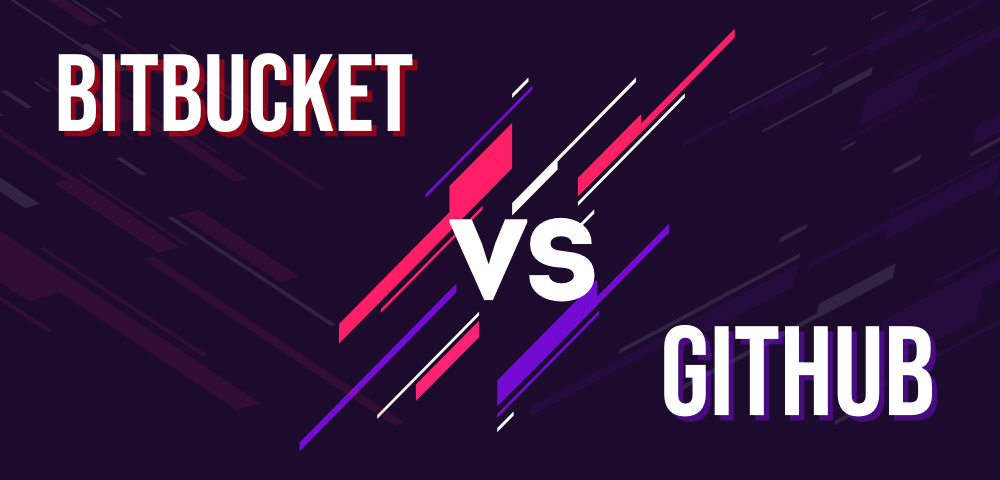Bitbucket vs. GitHub: Making the Right Choice for Your Development Projects
When it comes to hosting and managing code repositories, developers are spoilt for choice with numerous platforms available. Two of the most popular options are Bitbucket and GitHub. Both platforms offer robust version control systems and collaboration features, but each has its unique strengths and target audiences. In this blog post, we’ll delve into the differences between Bitbucket and GitHub, helping you make an informed decision based on your project’s specific needs.
Bitbucket: A Comprehensive Solution for Teams
Bitbucket, owned by Atlassian, is a versatile and developer-friendly platform that offers both Git and Mercurial support. It has built-in integration with other Atlassian products like Jira, Confluence, and Bamboo, making it an excellent choice for teams looking to streamline their development workflow with a unified suite of tools. Here are some key features that set Bitbucket apart:
Unlimited Private Repositories
Unlike GitHub, Bitbucket allows unlimited private repositories for free, making it an attractive option for small teams or personal projects.
Robust Access Control
Bitbucket offers fine-grained access control, enabling administrators to manage team permissions with ease, ensuring that sensitive code is kept safe.
Native CI/CD Pipelines
Bitbucket includes a built-in Continuous Integration/Continuous Deployment (CI/CD) feature, which can be easily configured to automate build and deployment processes, simplifying the development lifecycle.
Great for Enterprise
Bitbucket’s integration with Atlassian’s enterprise-focused tools makes it a preferred choice for larger organizations seeking a seamless end-to-end development solution.
http://informationarray.com/2023/07/19/docker-vs-git/
GitHub: The Developer’s Social Network
GitHub, on the other hand, has gained immense popularity among developers worldwide, largely due to its focus on open-source projects and its vibrant community. As of its acquisition by Microsoft in 2018, GitHub has continued to thrive and has seen consistent improvement. Here are some aspects that make GitHub stand out:
Unrivaled Community and Open Source Collaboration
community-driven approach has made it the go-to platform for hosting open-source projects. Developers can easily contribute to other projects, making it a hub for collaboration and knowledge sharing.
Strong Integration Ecosystem
While GitHub doesn’t have native integration with other platforms like Bitbucket, it compensates by offering a rich ecosystem of third-party integrations via its marketplace. This includes support for various CI/CD tools, project management platforms, and more.
Powerful Code Review and Collaboration
GitHub’s pull request system is highly regarded for its ease of use and the ability to facilitate smooth code reviews and discussions among team members.
Enhanced GitHub Actions
GitHub Actions is the platform’s native CI/CD solution, allowing developers to create custom workflows for building, testing, and deploying code.
Choosing the Right Platform
The decision to choose between Bitbucket and GitHub depends on your project’s specific requirements and team dynamics. Here are some factors to consider:
Team Size and Budget
If you have a small team or are working on personal projects, Bitbucket’s unlimited private repositories could be an enticing option. However, if you have a larger team and a budget for private repositories, GitHub’s strong community and integration ecosystem might be more valuable.
Integration Needs
Consider the existing tools and platforms your team relies on. Bitbucket’s integration with Atlassian’s suite can be a significant advantage if your organization is already using other Atlassian products.
Open Source vs. Closed Source
GitHub’s strong community and open-source culture make it ideal for public projects, whereas Bitbucket’s focus on privacy and unlimited private repositories makes it more attractive for closed-source or proprietary codebases.
In the end, both Bitbucket and GitHub are exceptional code hosting platforms, each with its unique strengths. Bitbucket excels in providing a comprehensive solution for teams, especially those already using Atlassian’s suite of tools, while GitHub shines with its vibrant community, open-source collaboration, and rich ecosystem of third-party integrations.
As a developer or team leader, carefully evaluate your project’s specific needs, budget constraints, and team dynamics to make the right choice. Regardless of which platform you choose, both Bitbucket and GitHub will undoubtedly contribute to enhancing your development workflow and accelerating your project’s success. Happy coding!









